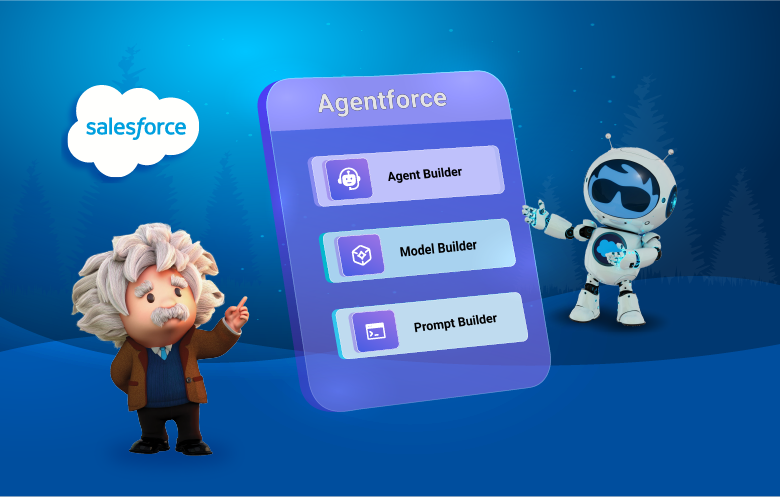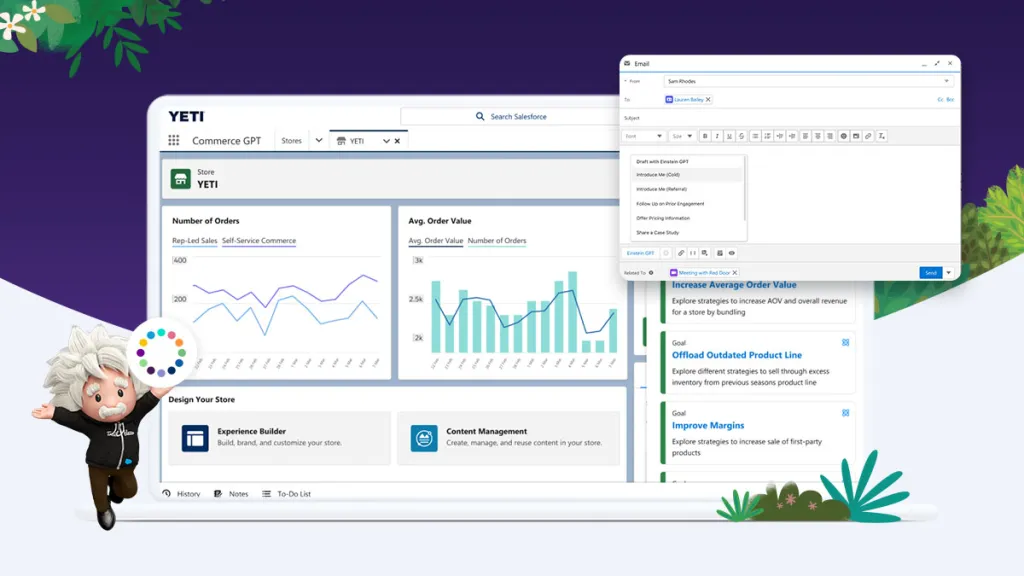In the age of digital transformation, businesses are continuously seeking ways to enhance their customer engagement strategies. One of the most promising innovations in this realm is the rise of AI-powered assistants. Among the leading solutions, Agentforce AI Assistants are revolutionizing how businesses interact with their customers, offering tailored, intelligent, and personalized experiences at scale.
What is Agentforce AI?
Agentforce AI is an advanced platform designed to provide businesses with intelligent, AI-driven virtual assistants that can engage customers in real-time. These assistants use cutting-edge natural language processing (NLP) and machine learning (ML) algorithms to understand and respond to customer queries with human-like interactions.
The core strength of Agentforce AI assistants lies in their ability to offer personalized responses based on individual customer data, past interactions, preferences, and behavior. This enables businesses to deliver a tailored experience that drives customer satisfaction, loyalty, and overall engagement.
Key Benefits of Agentforce AI Assistants
- 24/7 AvailabilityUnlike human agents who require rest, AI assistants are always on, providing customers with round-the-clock service. Whether it’s early morning or late at night, customers can rely on the assistant to get the answers they need instantly. This consistent availability builds trust and ensures that businesses never miss an opportunity to engage with their customers.
- Personalized Customer ExperienceAgentforce AI assistants are designed to learn from each interaction. They collect and analyze data to understand the unique needs and preferences of individual customers. Over time, they improve their responses and can even predict what customers might need next. This personalization helps businesses provide more relevant product recommendations, faster resolutions to issues, and targeted offers, enhancing the overall customer experience.
- ScalabilityOne of the most significant advantages of using AI-powered assistants is scalability. While human agents can only handle a limited number of customers at a time, AI assistants can engage with thousands of customers simultaneously without compromising quality. This is especially beneficial during peak times, such as sales events or product launches, where traditional customer support would struggle to keep up with demand.
- Cost EfficiencyHiring and training a large customer support team can be expensive. With AI assistants, businesses can reduce operational costs while maintaining high-quality customer engagement. By automating repetitive tasks such as answering common queries or processing basic transactions, businesses can free up human agents to focus on more complex issues, optimizing both cost and resource allocation.
- Enhanced Data InsightsAI assistants gather valuable data with each customer interaction. This data provides businesses with deeper insights into customer preferences, pain points, and behaviors. By analyzing this data, companies can refine their marketing strategies, product offerings, and overall customer experience. AI-driven insights are invaluable in shaping customer-centric business decisions.
- Seamless Integration with Other SystemsAgentforce AI assistants can integrate with existing customer relationship management (CRM) systems, e-commerce platforms, and other business tools. This integration ensures that the AI assistant has access to up-to-date customer information, allowing for more effective and personalized interactions. It also helps businesses streamline operations, ensuring a cohesive and efficient customer service process.
Real-World Applications of Agentforce AI Assistants
- Customer SupportAI assistants can handle basic customer service inquiries, such as troubleshooting issues, providing product information, or processing orders. By automating these tasks, businesses can reduce the burden on human agents, allowing them to focus on more complex customer issues. This leads to faster response times, improved customer satisfaction, and a more efficient support process.
- Sales and Lead GenerationAgentforce AI assistants can act as virtual sales representatives, guiding potential customers through the purchasing process. They can qualify leads, recommend products based on customer preferences, and even complete transactions. This not only enhances the customer experience but also drives sales and increases conversion rates.
- Marketing AutomationAI assistants can be used to deliver personalized marketing messages and offers based on customer data. Whether it’s sending a tailored email, pushing a promotion via social media, or offering discounts through a chatbot, AI assistants help businesses engage with customers in a personalized and meaningful way.
- Appointment SchedulingFor businesses in industries like healthcare, finance, or hospitality, AI assistants can help customers schedule appointments, confirm bookings, or reschedule if necessary. By automating this process, businesses can ensure that customers can easily access services at their convenience, improving both satisfaction and operational efficiency.
The Future of Customer Engagement with AI
As AI technology continues to evolve, the future of customer engagement is poised to become even more personalized and sophisticated. With advancements in voice recognition, predictive analytics, and deep learning, AI assistants will be able to provide even more nuanced and intuitive interactions.
In the coming years, Agentforce AI assistants will likely play an even more integral role in shaping customer service strategies across industries. Businesses that adopt these intelligent systems early on will not only gain a competitive edge but will also build stronger, more meaningful relationships with their customers.
Conclusion
Agentforce AI Assistants in Salesforce represent the next frontier in personalized customer engagement. By leveraging the power of AI, businesses can enhance their customer support, boost sales, and provide personalized experiences that drive long-term loyalty. As AI continues to evolve, these virtual assistants will only become more intelligent, efficient, and indispensable to businesses looking to stay ahead in an increasingly competitive digital landscape.
Investing in AI-powered solutions like Agentforce is not just a trend; it’s a strategic move that will define the future of customer engagement for years to come.




